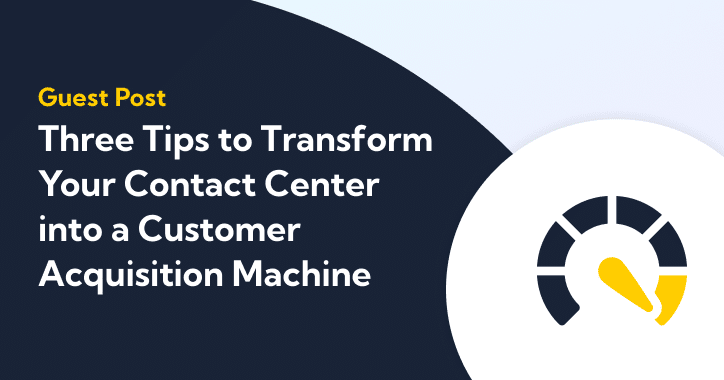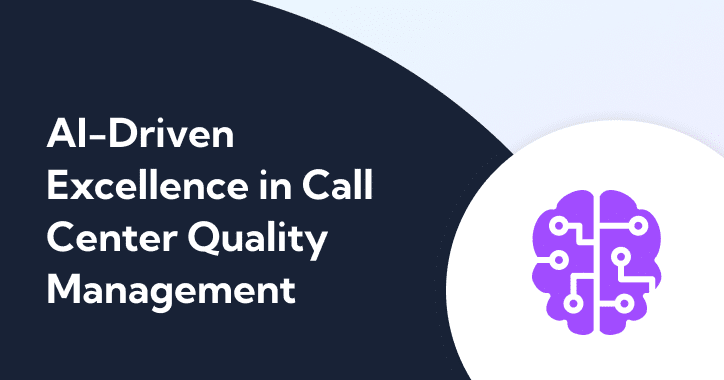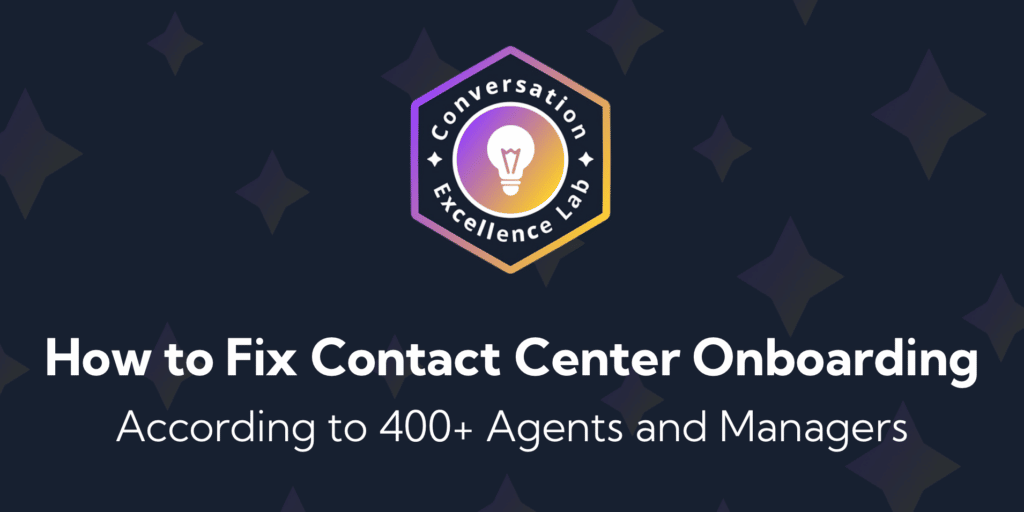When it comes to agent experience, contact centers have made significant strides in recent years. Nonetheless, many still have work to do to overcome a longstanding reputation. Attrition rates for contact center agents generally hover around 30–45%, and they reached as high as 100% during the COVID-19 pandemic.
There are many reasons for these high attrition rates, from stressful work environments to a lack of advancement opportunities. But one, in particular, may go unnoticed: ineffective onboarding and call center training. The process of retaining your best agents starts with how you handle their very first days on the job. According to a Gallup Panel study, employees who feel they had an “exceptional” onboarding experience are 2.3 times more likely to stay at their jobs — and almost twice as likely to excel in their roles.
Yet, most companies do a poor job of onboarding. Gallup notes that only 12% of employees say they’ve experienced effective onboarding at work. A significant reason for that may be a lack of one-on-one time between new hires and managers. For contact center managers, bolstering their one-on-one onboarding efforts may just be the key to getting better agents and keeping them longer.
Why 1-on-1 Onboarding Is Critical for Contact Centers
As contact centers have shifted increasingly toward remote workforces in recent years, managers have relied more heavily on online training resources. However, online onboarding brings a greater risk of delivering a depersonalized training experience. And our research shows that’s the exact opposite of what agents want.
According to our recent survey of over 200 agents and 200 managers, two out of three agents want more personalized, engaging onboarding experiences. Not only that, but agents and managers both ranked one-on-one training as by far the most effective onboarding method. Online learning management tools? Those ranked near the bottom of the list.
This data echoes what other research has shown for years. In a 2017 LinkedIn survey of 14,000 professionals across the globe, workers ranked one-on-one time with their direct supervisor or manager as the best form of onboarding. The previously noted Gallup research also points out that employees whose managers take an active role in onboarding are 3.4 times more likely to feel the process was effective.
In short, one-on-one onboarding gives your contact center the best chance of setting up your agents for long-term success.
1-on-1 Onboarding Best Practices
Simply building one-on-one time into your agent onboarding doesn’t guarantee it will improve outcomes, though. It’s important to make the most of that time. To help with that, here are four best practices for one-on-one onboarding.
Personalize Your Meetings
Employee onboarding includes many different elements. Your new hire needs to get up to speed on everything from your standard call flows to the tools you use. For many of these areas, however, other staff or departments can handle the training. As a manager, one-on-ones with a new hire are best suited for personalizing the onboarding experience and helping them feel at home in the company.
When you begin one-on-one onboarding with a new hire, look for ways to get to know them and engage with their interests. Discuss their personal goals for the job and how they’d like to develop professionally during their time in your contact center.
Be Consistent
Onboarding isn’t a one-and-done process. Most HR experts say it takes at least three months of training to effectively establish a new hire in their job — and longer may be better.
That means your one-on-ones shouldn’t just consist of a few meetings in the first few weeks of a new hire’s time followed by radio silence. Set a consistent schedule for at least the first three months so you can continue engaging new hires and help them improve. You can taper the frequency down as a new agent gets established, but don’t cut off these valuable meetings too soon.
Pave a Two-Way Street
One key way to personalize the training process is to make it more of a dialog than a monolog. If agents only feel they’re force-fed information, they’re less likely to retain information and stay engaged for the long haul.
Throughout the onboarding period, invite agents to share about their experiences so far. What questions do they have? What has been difficult? How was their first week? Do they feel they’re missing any information that would better prepare them to do their job? How are they connecting with the team? Make it clear that you want to hear from them and consider their feedback in the training process.
Set Expectations but Be Patient
During one-on-one training sessions, you have a unique opportunity to paint a clear picture of your company’s vision. You can explain what the company culture is like and establish clear expectations for each agent’s performance. This is a critical moment to show them what success looks like in your call center.
That said, it’s also important to be patient as new hires learn the ropes. Think like a coach and help them work through mistakes to grow into the role. Reinforce expectations while showing them you’re there to support their onboarding.
1-on-1 Onboarding Tips for Large Contact Centers
These tips may sound ideal for smaller contact centers. But what if you manage agents in a much larger setting? Often, you simply don’t have the time for that many one-on-ones. Don’t worry; you still have options.
Make Onboarding Groups Smaller
Just because you can’t do one-on-one onboarding doesn’t mean you have to default to huge groups for training. Research on schools has even shown that a 32% reduction in class size helps students retain an additional three months of learning. Instituting small training groups for your contact center can still help trainees immensely, even if it’s not happening one on one.
Involve Mentors
It’s worth noting that managers aren’t the only ones who can play a key role in a new agent’s one-on-one training. Establish mentors on the team who can help with onboarding and provide additional personalized guidance. This takes some of the pressure off your shoulders and gives other employees opportunities for growth, all while satisfying the need for one-on-one training. It also helps improve the dissemination of institutional knowledge, experience, and “pro tips” that new agents may not otherwise receive.
Enhance Your Onboarding Efforts With Balto
Creating high-performing, engaged agents is critical for call centers, and it starts with their first day on the job. There’s no replacement for one-on-one onboarding, but Balto can enhance agent training in other ways, too. Balto helps you give agents confidence as soon as they hit the phones. Think of it as an assistant coach or personal trainer to supplement your one-on-one efforts. Try a free demo today to see for yourself.







